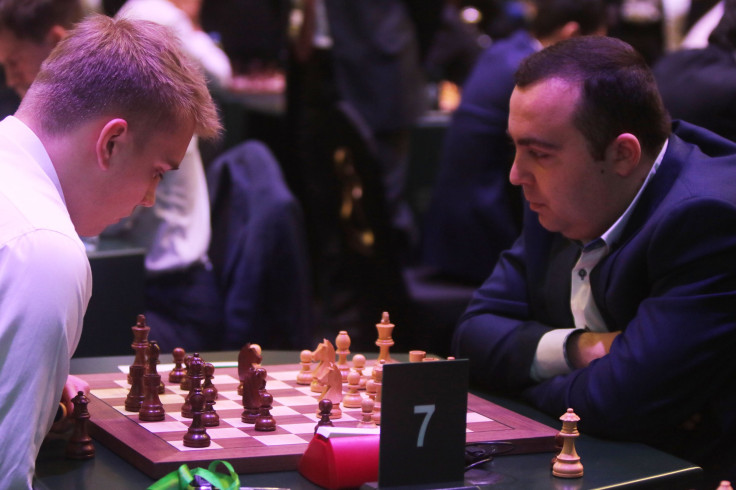Israeli Chess Players Barred From Saudi Arabian Tournament, Champion Refuses To Go

A speed chess tournament in Saudi Arabia began amid a number of controversies Tuesday, starting without a champion who is boycotting and Israeli players who were barred from entry.
The King Salman World Rapid and Blitz Chess Championship began Tuesday in Riyadh, but seven professional chess players remained in Israel because they weren’t given visas for the World Chess Federation-sanctioned event. Saudi Arabia does not have diplomatic relations with Israel, which some officials pointed to as the reason the Israelis weren’t given visas. Others called the move political.
“There needs to be a clear separation between sports and politics,” said Lior Aizenberg, spokesperson for the Israeli Chess Federation to the Washington Post. “We want our players to play in all competitions. What is going on in the Arab world does not interest us.”
Aizenberg indicated that he had been in touch with the Saudi Chess Federation who assured him they were “extremely positive that [Isreal] would get visas to attend.” Aizenberg said that the players would seek financial compensation from the World Chess Federation for not getting to participate.
Players from Qatar and Iran, countries Saudi Arabia has strained ties with, were able to get visas for the tournament.
The tournament also began without dual world champion Anna Muzychuk. The 27-year-old from Ukraine held world titles for two types of speed chess — rapid and blitz. Players must complete all their moves in 15 minutes for rapid and 10 minutes in blitz.
Muzychuk announced the boycott Saturday via a Facebook message. She said she did not want to play in a country where women are not on an equal playing field as men.
“In a few days I am going to lose two World Champion titles - one by one. Just because I decided not to go to Saudi Arabia. Not to play by someone's rules, not to wear abaya, not to be accompanied getting outside, and altogether not to feel myself a secondary creature,” said Muzychuk.
An abaya is a loosely fitting full-length robe that women are mandated to wear in public in Saudi Arabia. The World Chess Federation said that players would not have to wear the robe during games, however. Muzychuk’s protest highlights the restrictive treatment of women in the country who will only be allowed to drive for the first time sometime next year.
Muzychuk said her principles were more important than the potential payout of the lucrative event.
“I am ready to stand for my principles and skip the event, where in five days I was expected to earn more than I do in a dozen of events combined,” she said.
The tournament will pay out a total of $2 million, with individual prizes up to $750,000.
It is believed that Saudi Arabia paid around $1.5 million to host the tournament, substantially more than is typical. A top Muslim cleric in Saudi Arabia just last year said that the game was banned by Islam, making Riyadh an odd choice as host.
American chess player Hikaru Nakamaru, like Muzychuk, was critical of the host country.
To organize a chess tournament in a country where basic human rights aren't valued is horrible. Chess is a game where all different sorts of people can come together, not a game in which people are divided because of their religion or country of origin.https://t.co/SZUfZ5s8SP
— Hikaru Nakamura (@GMHikaru) November 9, 2017
© Copyright IBTimes 2025. All rights reserved.





















